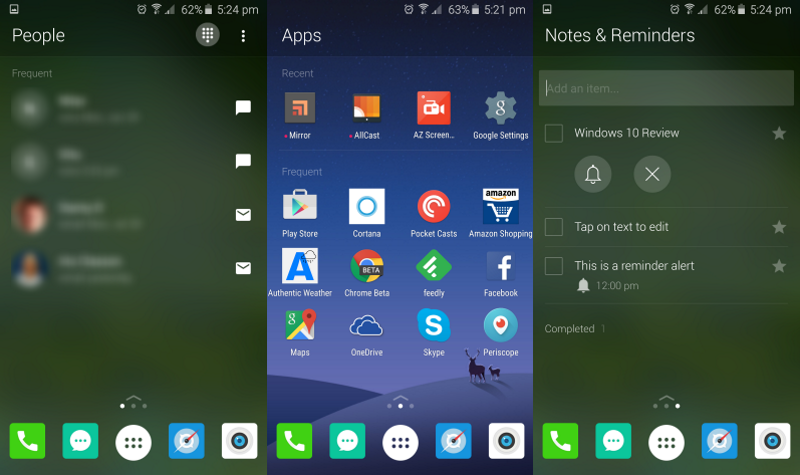On the eve of the release of Windows 10 Mobile, Microsoft has released a beta version of its own graphical shell for smartphones based on the Google operating system.
The novelty is called Arrow Launcher (you can download it here), its functionality boils down to a visual and partly functional change in the Android interface.
As you might guess, we are not primarily interested in the shell itself, which, by the way, is made very carefully, without any references to the Metro style traditional for the latest Windows.
The first and, perhaps, the main question in connection with the release of Arrow Launcher boils down to the phrase: why did Microsof do this?
In light of the company’s plans to lay off 7800 employees, most of whom were employed in the company’s “telephone” business, such a step can be interpreted as recognition of its defeat in the smartphone market, leaving it.
But here you need to understand that it is one thing to reduce your own production capacity, possibly planning in the future to abandon the creation / design of devices within the company. And it’s quite another, consider leaving the market, adapting your solutions to the ecosystems of competitors.
Given the rumors about Microsoft’s search for partners to release budget devices for emerging markets, the first reports about the company’s new flagships and, of course, Satya Nadella’s statements that the company is not going to leave the smartphone market, it is hard to believe.
Moreover, let’s not forget Microsoft’s desire to create a single ecosystem. Without smartphones and tablets, its universality is called into question.
If so, then why is Microsoft launching an Android launcher almost on the eve of the release of Windows 10 Mobile?
The first, self-evident answer: for the same reason that it releases applications like Cortana on competitive platforms. For Microsoft, this is to some extent the popularization of its platform.
It should also be clear that you can build your own ecosystem outside of your own decisions, entering, if possible, into the territory of rivals.
Plus, it is not necessary to exclude a simple desire of the corporation to experiment with the Android platform.
So, it seems to us that developers of both applications and games that work with Windows Phone should definitely not be scared yet, looking at the release of the launcher. Microsoft is not exactly planning to abandon WP in favor of Android yet.


